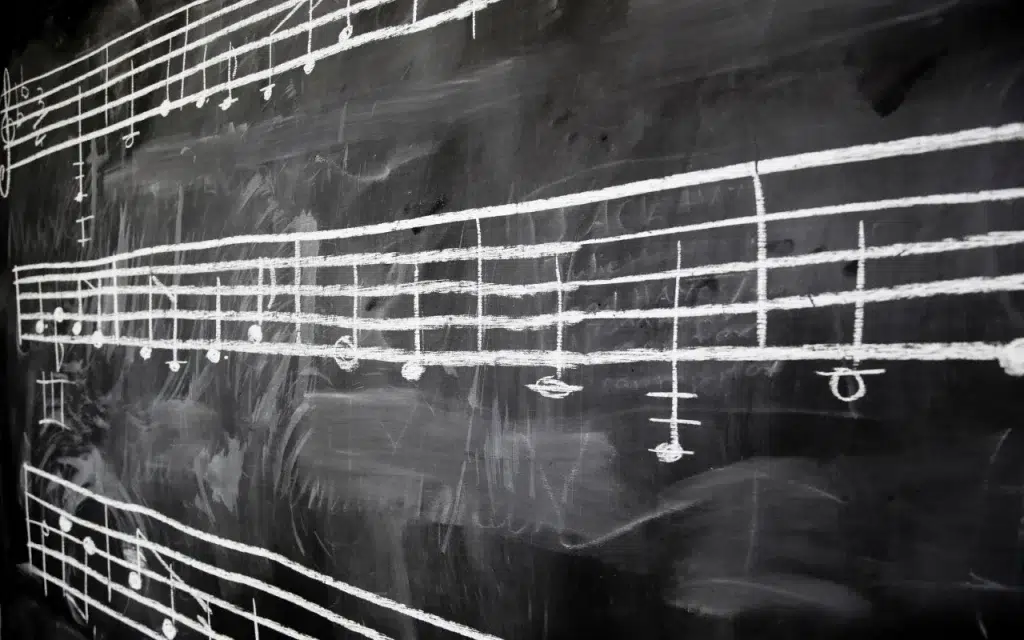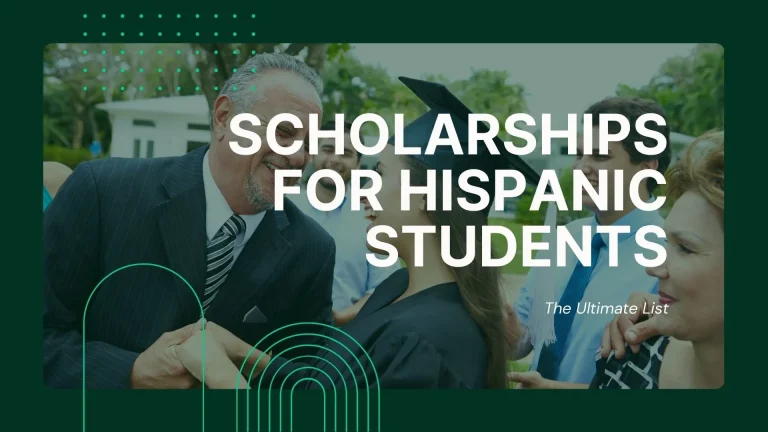Pursuing a career in music often requires significant financial investment. Students studying music typically face additional expenses beyond standard tuition and fees. Instrumentalists, for example, must budget for instrument repairs and maintenance, while vocalists may need specialized care, such as teas or supplements, to preserve their voice. These costs can quickly add up, making financial planning even more critical.
For high school students, including graduating high school seniors and college students alike, the key to reducing these financial pressures lies in proactive scholarship research. Music scholarships are essential in making the music journey more accessible. Opportunities like college-specific scholarships, private awards, and other funding options offered by universities can provide substantial relief.
Music education students also face a more complex application process compared to many other fields of study. Unlike other majors, they must apply separately to the college or university and the music school, each with its own set of fees and requirements. Audition preparation, portfolio creation, and additional application costs can create barriers if not accounted for early on.
A well-prepared application can make all the difference. Emphasizing achievements, showcasing unique talents, and conveying a clear vision for one’s musical journey are key components of a successful application. By understanding what these scholarships value, you can position yourself strategically to seize these invaluable opportunities.
At Scholarship Institute, we’ve curated and vetted a comprehensive list of scholarships tailored to music education students to help you take the first step toward a financially supported college experience. Discover how colleges’ music scholarship(s) can help fund your musical journey by reading more.
Looking for a scholarship program? Browse through our list of scholarship recommendations to find opportunities best suited to you.

Types of Music Scholarships Available
Students pursuing music or performing arts have access to a variety of financial aid options. While some scholarships are specifically for music students, others are open to all students regardless of their field of study.
Merit-Based Scholarships
Merit scholarships are awarded based on a student’s demonstrated ability, not financial need. For music students, this means showcasing exceptional musical talent. For instance, a choral music student might submit a resume of ensembles they’ve performed with, such as school choirs, community groups, or church ministries. Some scholarships may also require a live or recorded audition to evaluate your skills.
Private Scholarships
Private scholarships are funded by businesses, organizations, or clubs to help students cover educational costs. These scholarships can be local, regional, or national, depending on the organization’s reach. Private music scholarships often have specific criteria, such as instrument type, genre, or involvement in community music programs.
Academic Scholarships
Even as a music student, you remain eligible for academic scholarships offered by colleges or universities. Many schools allow students to combine academic and music scholarships for a more robust financial aid package.

Top Music Scholarships in the Industry
Here are some of the most sought-after scholarships in the industry:
1. The ASCAP Foundation Scholarships
Known for supporting young talent, these scholarships focus on various genres and are awarded based on a combination of merit and need.
3. The YoungArts Foundation
This program offers prestigious scholarships to musicians aged 15-18.
4. Jack Kent Cooke Foundation College Scholarship
While it’s not exclusively for music students, it supports high-achieving high school seniors with financial need who wish to pursue their passion in college, including music majors.
Top Music Schools Offering Prestigious Scholarships
Exploring music scholarships at leading institutions can be a transformative step in your musical journey. Here are some of the most renowned music schools that offer prestigious scholarships:
Berklee College of Music Scholarships
Berklee College of Music, located in Boston, is a beacon for aspiring musicians worldwide.
1. Merit-Based Scholarships
These are awarded based on the student’s musical talent and academic performance. The Presidential Scholarship, one of the most esteemed, covers tuition, room, and board.
2. Application Process
To apply, students must complete an online application and submit a performance video. Interviews or live auditions may also be required.
3. Eligibility Criteria
Applicants are evaluated primarily on their musical potential, creativity, and leadership qualities.
Juilliard Scholarships
The Juilliard School in New York City is synonymous with artistic brilliance. Its scholarship programs aim to foster exceptional talent in music.
1. Need-Based Assistance
Juilliard offers significant need-based financial aid to ensure that financial constraints do not hinder promising talents from enrolling.
2. Funding Options
Nearly 90% of Juilliard students receive some form of financial aid, including scholarships that cover a substantial portion of tuition costs.
3. Benefits
Recipients gain access to world-class faculty and extensive performance opportunities that enhance both skill and exposure.
Additional Noteworthy Institutions
- Curtis Institute of Music: Offers full-tuition scholarships to all admitted students.
- Eastman School of Music: Provides a range of merit-based scholarships for outstanding performance and academic achievements.
How to Apply for Music Scholarships
One important tool at your disposal is the Free Application for Federal Student Aid (FAFSA). This application determines eligibility for financial aid across various educational programs.
FAFSA for Music Students
- Purpose: FAFSA assesses your financial need, which many institutions use to allocate need-based scholarships.
- Process: By filling out a single application, you unlock access to federal grants, loans, and work-study opportunities.
- Relevance: Even if you’re applying for merit-based music scholarships, submitting a FAFSA can strengthen your overall financial aid package.
Beyond FAFSA, musicians have additional avenues to explore:
- Grants: Unlike loans, grants do not require repayment.
- Work-Study Programs: These allow students to earn money through part-time jobs on or off-campus while pursuing their music studies.
- Institutional scholarships: Colleges, universities, and conservatories often offer their own scholarships to support talented musicians. These awards may be merit-based, focusing on musical skill and performance, or need-based, considering financial circumstances.
Tips for Winning Music Scholarships
Tips for Securing Music Scholarships
Once you’ve identified music scholarships to apply for, how can you boost your chances of being selected? While there’s no way to guarantee success, following these tips can help you stand out:
1. Prepare Thoroughly for Auditions
If the scholarship requires an audition, focus on more than just your performance. Ensure that logistical details—like your outfit, travel plans, and any required materials—are handled well in advance.
2. Write Impactful Essays
For scholarships with an essay component, carefully address every part of the prompt. Avoid going off-topic or including unnecessary details that dilute your message.
3. Showcase Your Unique Qualities
Highlight what sets you apart as a musician.
4. Seek Feedback
Ask a teacher, mentor, or trusted friend to review your audition pieces, essays, or application materials.
5. Stay Organized
Keep track of deadlines, requirements, and submission formats for each scholarship. Missing a key detail or a due date can cost you an opportunity, so create a checklist or calendar to stay on top of the process.

Frequently Asked Questions About Music Scholarships
1. Are There Scholarships Available for Specific Instruments or Genres?
Yes! Many scholarships cater to particular instruments or musical genres. Look into specialized music associations or foundations dedicated to your area of interest.
2. How Can I Improve My Chances of Winning Music Scholarships?
Playing to your strengths is an excellent way to increase your chances of winning music scholarships. If you are a better writer than a musician, apply for more scholarships that require essays. If you are a better musician than a writer, try applying for more scholarships that allow you to send audition tapes.
3. Do I Need to Major in Music to Qualify for Music Scholarships?
Not always. Some scholarships are designed for music majors, while others support students who actively participate in music programs or ensembles, regardless of their major.
4. Are There Music Scholarships Specifically for High School Seniors?
Yes. Many music scholarships are designed specifically for high school seniors preparing to enter college. These scholarships often support students pursuing music majors or those who have demonstrated outstanding musical talent during high school.
5. Where Can Graduate Students Find Music Scholarships?
Graduate students have several avenues to explore when seeking music scholarships. Universities and conservatories often provide graduate-level scholarships tailored specifically for music students, including those in performance, education, or composition programs. Additionally, foundations and trusts, like the Fulbright Program or local arts councils, may fund graduate-level music education or research.
6. What Role Do Federal Student Loans Play in Funding a Music Education?
While scholarships and grants are often preferred because they don’t require repayment, federal loans can help cover any remaining tuition or living expenses. Completing the Free Application for Federal Student Aid (FAFSA) is the first step to accessing these loans.
7. How Can Music Faculty Help in the Scholarship Process?
Music educators may nominate students for scholarship funds, including departmental awards, assist with audition preparation, or write letters of recommendation. Faculty members can also provide guidance on additional scholarship opportunities and resources within the field of music.
Read our blog now for expert insights and proven strategies to secure music scholarships!

Ari Moriah
Ari's passion for education and student support forms the foundation of her contributions to Scholarship Institute, where she writes about finding scholarships and funding opportunities. With a strong commitment to helping students, Ari leverages her academic expertise in history and philosophy to guide them in finding resources for their education. She earned a B.A. from Pacific University, where she focused on Early American History and Late Antiquity/Early Medieval Greco-Roman Europe, complemented by a minor in Philosophy. As a writer, Ari draws on her research and educational background to inspire and assist students in achieving academic success.






